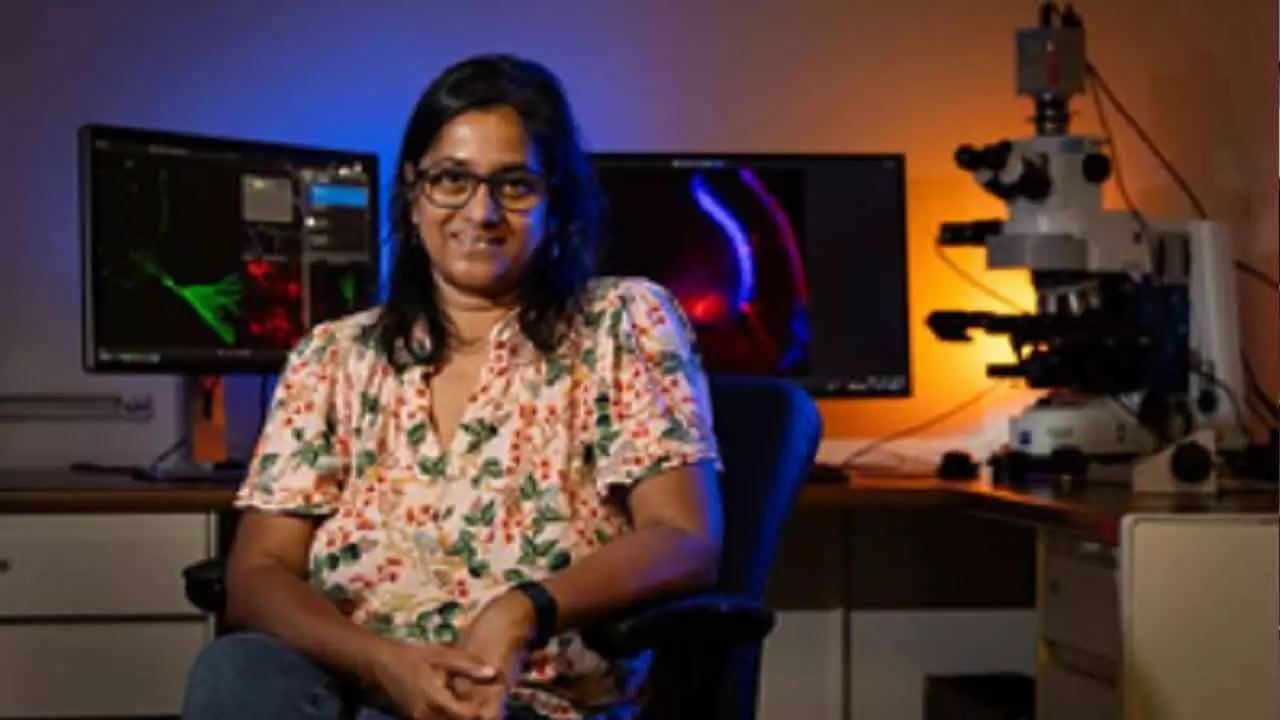Bharat-Bred Scientist Finds Gene Behind Autism, Seizures
The gene, called neuropilin2, encodes a receptor involved in cell-cell interactions in the brain and plays a key role in regulating the development of neural circuits
Viji Santhakumar

By selectively deleting neuropilin2 during a key developmental window, the re-searchers found impairments in inhibitory regulation of the circuit, which led to deficits in behavioural flexibility, social interactions, and an increased risk for seizures
New York: A team of researchers, led by Indian-origin neuroscientist Viji Santhakumar, has found a gene that contributes to the development of behavioural changes associated with au-tism spectrum disorder and epilepsy. The gene, called neuropilin2, encodes a receptor involved in cell-cell interactions in the brain and plays a key role in regulating the development of neural circuits.
The study, published in Nature Molecular Psychiatry, offers a pathway for future treat-ments aimed at alleviating some challenging symptoms of these frequently co-occurring conditions.
Earlier research has linked mutations in neuropilin2 to neurological disorders like au-tism and epilepsy, but the mechanisms involved have remained largely unclear.
Santhakumar and her collaborators from University of California–Riverside created a mouse model to examine the consequences of deleting the neuropilin2 gene. They found the absence of neuropilin2 impairs the migration of inhibitory neurons, dis-rupting the delicate balance between excitatory and inhibitory signals in the brain.
“This imbalance leads to autism-like behaviours and an increased risk of seizures,” said Santhakumar, professor of molecular, cell and systems biology. “The study results highlight how a single gene can influence both the excitatory and inhibitory systems in the brain. We show that disrupting inhibitory circuit development is sufficient to cause autism-related behaviours and epilepsy to co-occur,” Santha-kumar added.
By selectively deleting neuropilin2 during a key developmental window, the research-ers found impairments in inhibitory regulation of the circuit, which led to deficits in be-havioural flexibility, social interactions, and an increased risk for seizures.

